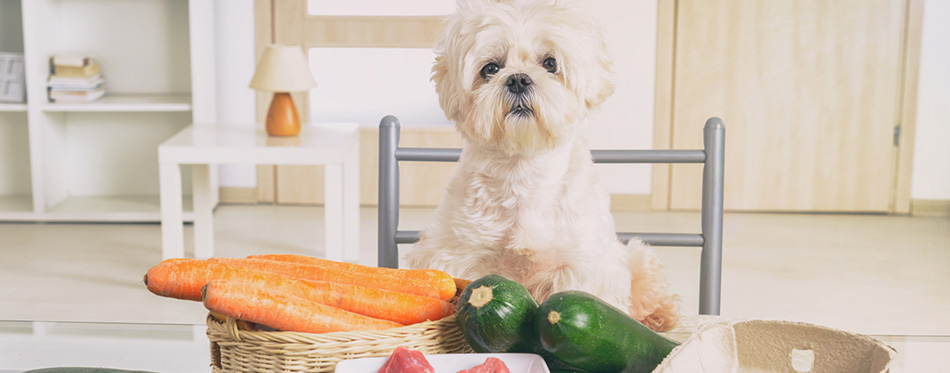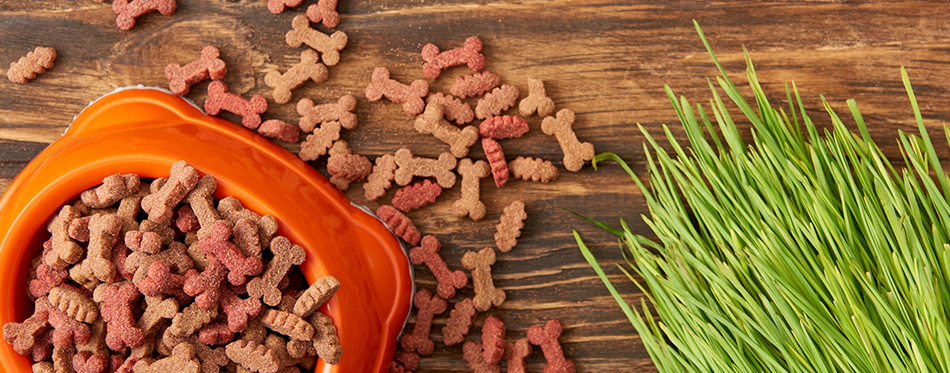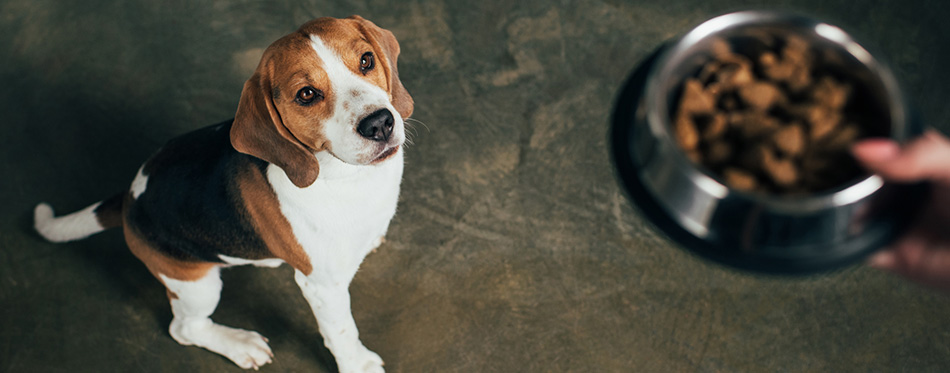Life stage nutrition is all about matching your pet’s diet with the stage of life that they are at. It is mainly applied to dogs and cats but the principles may apply to other animals as well and they certainly apply to humans!
If you think about the life stages of a puppy and a kitten it becomes clear that their nutritional requirements will change. When they are young, their bodies are growing and developing at a rapid rate and they are very physically active. Once they reach maturity, reproduction is a big factor. For females, in particular, there will be a special dietary requirement when they are pregnant or nursing a litter of pups or kittens. As your pet becomes more senior, their metabolism slows down, they may adopt a more sedentary lifestyle and they may develop certain chronic health conditions (such as kidney or liver disease) that are associated with old age. These conditions can require a special diet to manage them appropriately and to stop them from getting worse.
At each life stage, your aim should be to feed your pet appropriately so that you can promote peak health and performance and prolong the length of their life. You also want to make sure that they have the best quality of life possible. Conversely, if you get their diet wrong, you could actually be causing health issues including obesity that could shorten their life and cause suffering.
Therefore, it is important to keep their diet under constant review and not to become complacent. Look out for a statement on your pet’s food packaging indicating that it complies with the requirements of the Association of American Feed Control Officials (AAFCO). Some foods are labeled as suitable for puppies or kittens and others are designed for senior animals. However, others are labeled as appropriate for all life stages and these may not provide the exact nutrition that your pet needs. Therefore, it is sensible to talk to your vet because they will always be able to offer advice on the best diet for your pet based on their stage of life as well as on their breed, sex, size and activity levels as well as on their health status.

Feeding Pups and Kittens
Pups and kittens are growing rapidly and therefore require a particular range of nutrients. If they don’t get the right nutrition, the result can be deficits in growth and potentially life-long health problems.
Young dogs have a very high-calorie requirement and need food that is specially formulated for pups. They also have a higher protein requirement and puppy foods need to have at least 22 per cent protein in their food compared to 18 per cent for adult dogs. They have higher requirements for individual amino acids such as leucine (0.72% compared to 0.59% for adult dogs) which are vital for growth and development. They also need larger quantities of some minerals including chloride compared to adult dogs. A pup’s diet needs 0.45 per cent of this mineral compared to the 0.09 per cent required in an adult dog’s diet.
Most experts think that they need this diet until they reach 90 per cent of their adult size and for medium and small dogs it would be around one year of age.
In large-breed dogs, however, it would not be until they are 18 months old. You also have to be very careful about what you feed the pups of Labradors, Great Danes and other large-breeds. These pups grow extremely rapidly and this can lead to problems with their bones. Therefore, you need a commercial dog food that is specially formulated for large-breed pups. These foods regulate their calcium and calorie intake to prevent health issues like hip dysplasia and associated arthritis and pain that it can cause in later life.
Cats need a special kitten diet until they are around ten months old and, similar to pups, they will do better on food designed just for kittens . Kitten food is more nutrient dense so there will be enough calories and essential nutrients in the small amounts that a kitten can fit in their tiny stomach. Kittens need food that has at least 35 per cent protein and 12 to 24 per cent fat and these values are rare in adult cat food.
Related Post: Kitten Food for Your Cat
Feeding Adult Dogs and Cats
Once your dog or cat is an adult, you can feed them a proprietary food that is suitable for their breed. You may have to adjust the quantity that you feed them but provided they do not develop any food allergies you probably won’t need to change the brand. Remember that more than half of all dogs in the US are obese so over-feeding is a huge problem. Keep an eye on your pet’s body weight and make adjustments as necessary. Their calorie intake must match their activity levels so a dog that has a sedentary lifestyle does not need so much food. Watch out for calorie-laden treats and scraps from the table too. You may also need to change their diet if they develop any health issues, such as arthritis or bladder stones.
Obesity in cats is also a big problem in the US and more than half of our adult cats are obese. Free-feeding is thought to be partly to blame for this but cheaper cat foods that have carbohydrates are probably not helping. Cats do not actually need carbohydrates and will do better on high-quality, protein-rich food.

Breeding Dogs and Cats
The situation changes if you are planning on breeding from your dog. Pregnant dogs need higher proportions of fat and protein and need highly digestible ingredients to get the most out of every mouthful. Discuss your on pet’s nutrition with your vet. Many experts recommend that expectant Mom dogs return to a diet formulated for pups. High-quality puppy foods are often the best option for reproduction. A Mom dog’s calorie intake will increase at around six weeks gestation and continue to be high throughout the pregnancy. Then, it will decrease just before she whelps and increase again as she starts to nurse her pups. Once the pups are weaned, she can gradually return to a normal adult-dog diet.
Similarly, a pregnant cat has increased nutritional needs and will require more calories. They will do well on a high-quality kitten food which is packed with all the nutrients they need. The quantity of food that she requires will also increase throughout the pregnancy. Once the kittens are weaned they can return to a normal diet.
Feeding Senior Dogs and Cats
Senior cats and dogs have very specific dietary requirements and a standard pet food formulation may no longer be suitable for them.
- Feeding Senior Dogs
Dogs are classed as senior at different ages. Smaller breeds tend to live until they are around 15 to 20 years of age and are classed as senior when they reach eight or nine years. The larger breeds only live until they are 12 to15 years and are considered to be seniors at around six years of age.
Senior dogs need fewer calories because they are not growing, they are not reproducing, their metabolic rate is lower and they tend to move around less. They may also benefit from a high fiber diet which promotes gastrointestinal health. At this stage of their life, your pooch would benefit from a diet that is designed for older dogs. This type of dog food is easier to digest and has a softer texture so it will suit dogs with dental problems. The foods usually have added joint supplements and omega 3 oils and fatty acids to help their joints.
In terms of nutrition, foods for senior dogs need to be protein-rich to prevent them from losing muscle mass. However, as the protein content rises so does the phosphorus content so you may need to control this for senior dogs that have kidney disease. The fat content needs to be matched with your dog’s weight. Some elderly dogs struggle to maintain their weight and they need a diet that is high in fat. However, others are obese and they need a reduced fat content in their diet.
The same is true for the fiber content. Senior dogs who suffer from constipation need a high fiber diet to help them pass poop regularly and comfortably. On the other hand, some foods for senior dogs are low in fiber because it can get in the way of the absorption of essential nutrients. Because some senior dogs lose their appetite and eat smaller quantities, a calorie-dense food is best for them. For a wider selection of choices, check out our high fiber dog food guide.
Dogs can start to show memory loss and a deficit in the ability to learn as they get older. Research has shown that dietary supplements that are added to some foods can help the situation. In particular, there are studies that indicate that medium-chain triglycerides (MCTs) can help with cognitive (brain and thinking) function. These fats are found in coconut oil and palm oil so look out for these on dog food labels.
Antioxidants are great for maintaining brain health and may even help to prevent cancer. They are found in vegetables in the form of carotenoids such as beta-carotene and other phytonutrients. Sweet potatoes and blueberries are a good source as are other so-called ‘superfoods’.
Docosahexaenoic acid is an omega 3 fatty acid that is found in the highest concentrations in substances such as fish and algae oil. It can be very helpful to senior dogs and is often added to senior dog food formulations.
Finally, don’t dismiss fresh fruit and vegetables. They contain a huge range of important micro-nutrients that can be destroyed when commercial food is heat-treated. Therefore, think about introducing them as healthy snacks into your senior dog’s diet.

- Feeding Senior Cats
Cats undergo the same aging process as dogs; their activity levels decrease, their metabolism slows down and they are at a higher risk of becoming obese. There is no perfect food that will suit all senior cats. Some benefit from a low protein diet but others do not. Some lose their appetite and need a calorie-dense food whilst others become obese and need smaller portions. Ask your vet for advice and always pick foods that are formulated according to guidelines established by the Association of American Feed Control Officials (AAFCO). Get used to reading labels and use portion control.
Some cats develop chronic health conditions and these may require a particular diet. Diabetes is a common health problem in cats and is linked to obesity. Diet is crucial in managing this potentially serious disease. Speak to your vet about diet as soon as your kitty is diagnosed with diabetes. Your vet may recommend a diet that is high in protein and low in carbohydrates. Careful diet and weight management, together with regular insulin, can bring the condition under control.
Kidney disease is another common problem for older cats. Your senior cat may be put on a special ‘kidney diet’ which is low in phosphorous, salts and protein. Cancers are also more common in older cats and it can result in rapid weight loss. Your cat may need extra calories to help them put weight back on and maintain their strength. Dental disease in an older cat may mean that you have to switch from dry food to softer canned food.
Overall, it is clear that your pet’s nutritional needs will change as they age. However, this is far from a one-size-fits-all situation. It is important that you work with your vet to choose the best diet for your pet based on their age but also taking their lifestyle, underlying health conditions, size and breed into consideration.
Related Post: Cat Food for Kidney Disease

